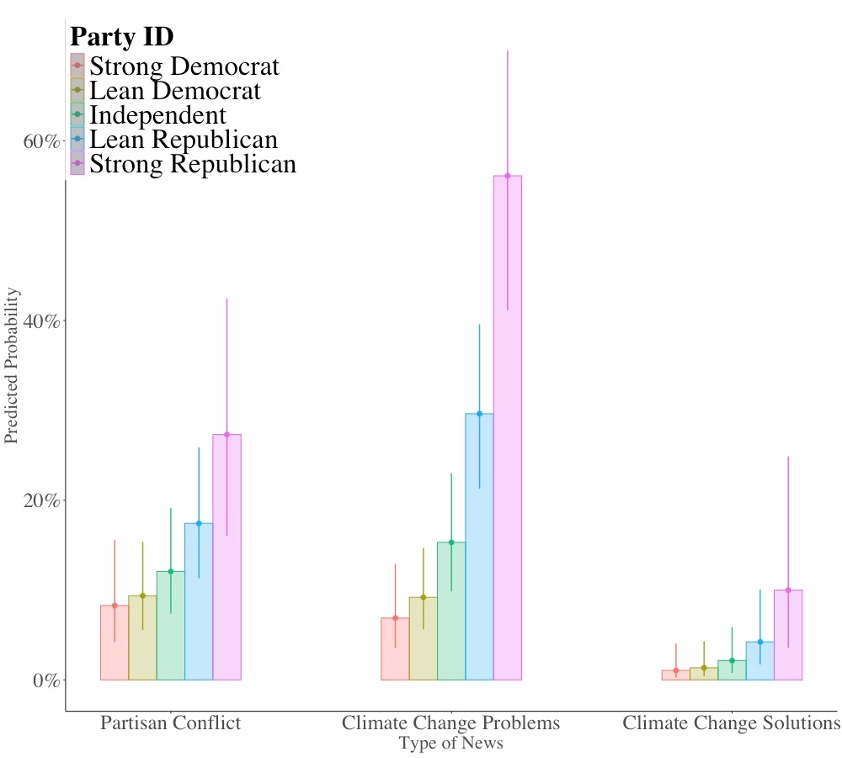|
How can journalists change public conversation on polarizing issues?
One way may be writing about cooperative solutions, rather than focusing only on problems or partisan conflict. In a recent experiment, we tested whether different types of news articles about climate change in the United States could change the ways people discuss a polarizing issue.
Participants (n = 1,031) were U.S. residents recruited through Cloud Research Connect. They saw either a news article that emphasized partisan conflict, a news article that emphasized problems associated with climate change, or a news article that emphasized cooperation and potential solutions related to climate change. They were given the opportunity to write a comment after reading the article and then were asked how willing they would be to post the comment they wrote in an online comment section.
Initial results suggest that news articles about climate change solutions had beneficial effects compared to news articles about conflict among political partisans and news articles that focused only on the dire problems that come with climate change. Solutions news articles made people:
- express more willingness to post a digital comment on a news article compared to articles that emphasized partisan conflict or climate change problems,
- believe that comments on a news article would be less uncivil compared to articles that emphasized partisan conflict or climate change problems ,
- generally feel more hopeful compared to articles that emphasized partisan conflict or climate change problems.
The type of news article also affected the content of participants’ comments. People mentioned conflict and used insulting language more often when they read a partisan conflict article than when they read a climate change problems or climate change solutions article.
Finally, news articles emphasizing climate change problems polarized the content in Democrats and Republicans’ comments, especially the probability of mentioning that climate change is not really happening or is not caused by humans. When strong Republicans read news articles that emphasized climate change problems, they were substantially more likely to mention misinformation and/or express the belief that climate change is not a real problem, whereas strong Democrats were much less likely to do so. Articles that emphasized climate change solutions did not prompt the same type of polarized discourse about the existence of climate change.

Importantly for journalists and news organizations, people were also more likely to want to read, like, share, talk about, and even pay a small fee for articles that emphasized either climate change solutions compared to articles that emphasized partisan conflict. These early results suggest that news about solutions may be one way to generate helpful public discussion about a polarizing topic.




